Raeisi to Putin: Iran absolutely serious about removal of all sanctions in Vienna talks
Iran’s President Ebrahim Raeisi says the Islamic Republic is “absolutely serious” in its pursuit of the removal of all US sanctions in the talks slated to be held later this month in the Austrian capital, Vienna, on the fate of the troubled 2015 multilateral nuclear deal.
In a phone call on Tuesday with Russian President Vladimir Putin, whose country is also a party to the agreement, Raeisi praised Moscow’s positions in defense of Iran’s nuclear rights and the necessity of the removal of all the sanctions imposed on the Islamic Republic by the US in the aftermath of Washington’s unilateral exit from the accord.
“The Islamic Republic of Iran is absolutely serious in the negotiations and we are equally serious in ensuring the right of our nation to have the sanctions removed,” he said.
Envoys from Iran and the remaining parties to the nuclear deal, officially known as the Joint Comprehensive Plan of Action (JCPOA), are expected to hold the seventh round of discussions in Vienna on November 29. The negotiations were paused in June, when Iran held its presidential election. Since then, the new Iranian administration has been reviewing the details of the six rounds of discussions held under the previous administration.
The administration of US President Joe Biden has said it is willing to rejoin the deal, but it has shown an overriding propensity for maintaining some of the sanctions as a tool of pressure. Tehran insists that all sanctions should first be removed in a verifiable manner before it reverses its remedial measures.
During the phone conversation, Putin, in turn, reaffirmed Moscow’s support for the Iranian nation’s nuclear rights and expressed hope that the participants in the Vienna talks would have the necessary political will to end the current stalemate surrounding the nuclear agreement.
Bilateral ties
Elsewhere in the phone conversation, the Iranian president said Tehran was determined to boost trade and economic relations with Russia and finalize a comprehensive document on long-term bilateral cooperation that would help both sides pave the way for closer ties as soon as possible.
The two presidents also exchanged views on a number of regional issues, including the crises in Syria and Afghanistan and the situation in the Caucasus region.
Raeisi said Tehran and Moscow enjoyed convergence and synergy in many international issues, including in fighting unilateralism and strengthening multilateralism. He stressed the need for cooperation between the two countries on issues of regional significance.
For his part, Putin backed Iran’s proposal for drafting an agreement on long-term bilateral cooperation and said Moscow was resolved to finalize and enact such a document at the earliest.
The Russian president said his country attached great significance to the expansion of economic ties with Iran and the finalization of joint investment projects.
On regional issues & relevant bilateral cooperation
On Syria, where Iran and Russia have been helping the government against a foreign-sponsored campaign of militancy, Raeisi said Iran believed the continuation of illegal foreign presence ran counter to the will of the Arab country’s people and government and was a threat to Syrian stability and security.
Raeisi also renewed Iran’s warning about the presence of the Takfiri Daesh terror group in Afghanistan and the entire region, saying, “We must remain vigilant in the face of the dangers of this conspiracy.”
“The Islamic Republic of Iran calls for the establishment of an inclusive government with the presence of all ethnic and political groups,” Raeisi said. “We believe that the formation of such a government can guarantee the country’s security.”
Referring to the two countries’ cooperation on regional issues, especially on Syria, Putin said Tehran and Moscow had jointly succeeded in preserving the Arab country’s independence and destroying the terrorist hotspot but they should further expand close relations in various regional sectors.
Pointing to the latest developments in the Caucasus region, Raeisi and Putin emphasized that no change in the region’s geopolitical state and in borders of regional countries was acceptable.
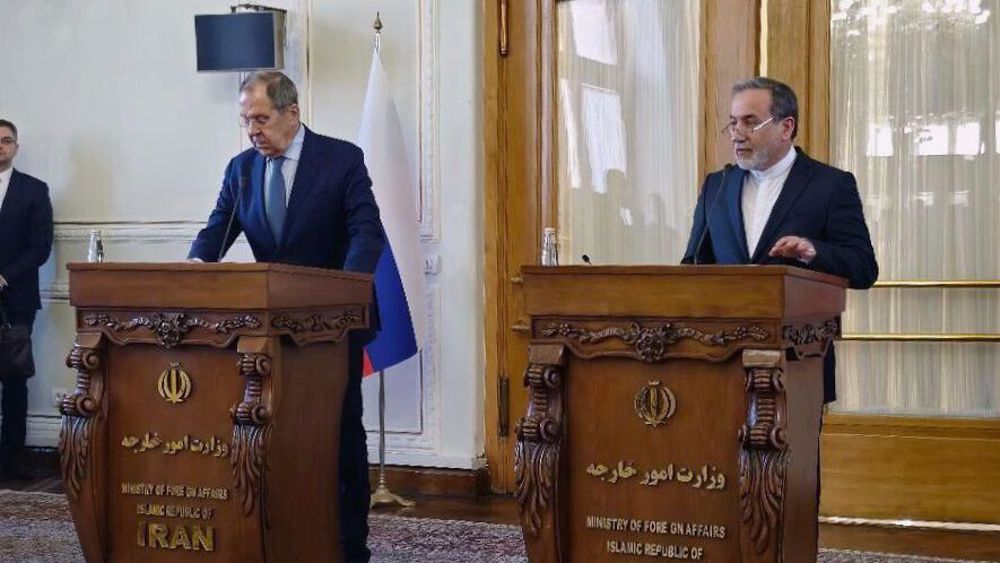
Iran rules out nuclear talks with US amid ‘maximum pressure’ campaign
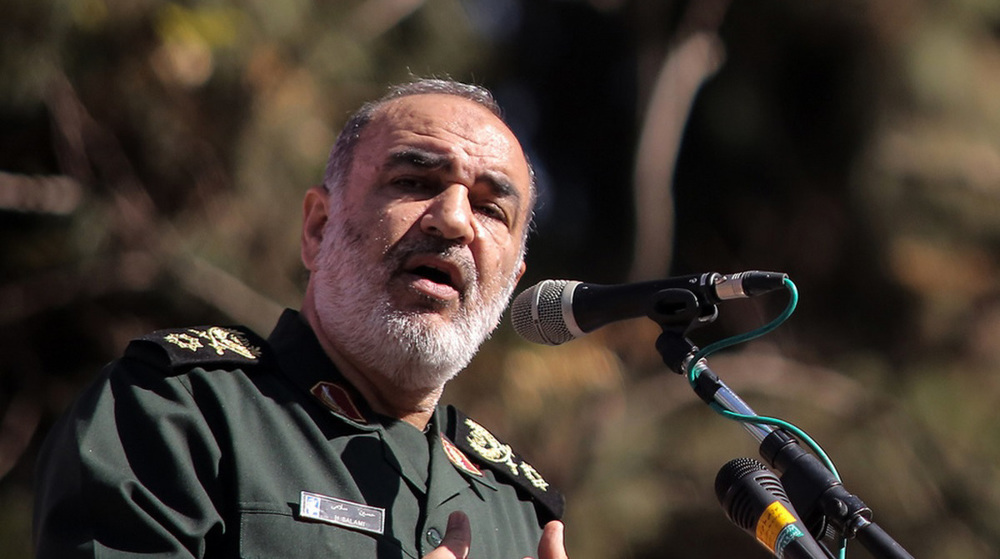
Flying warplanes over Beirut funeral exposed enemy’s fear of power, unity of nations: IRGC
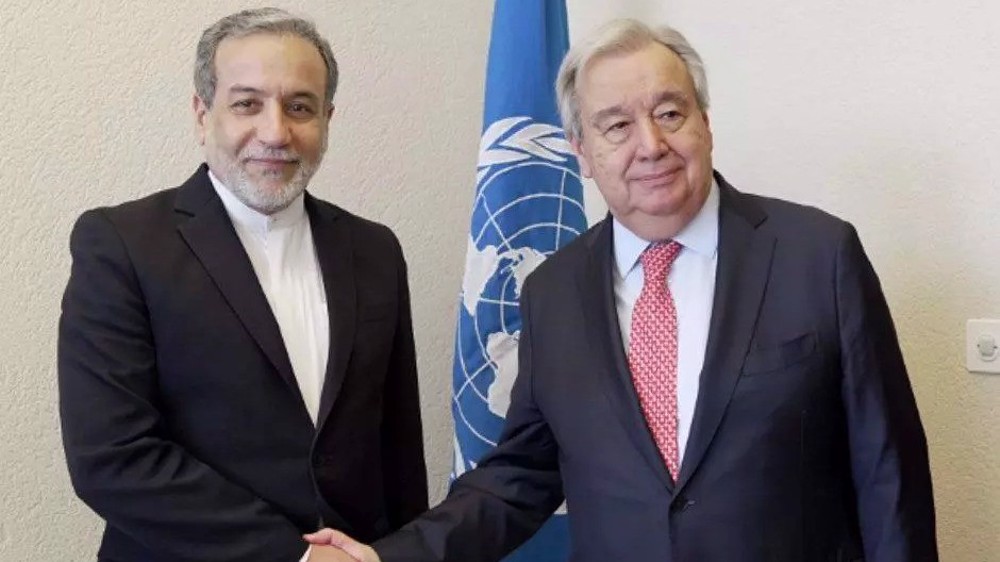
Araghchi tells UN chief: Israel must be held accountable for crimes against Palestinians
VIDEO | Gazans striving to survive with bare hands
'Shocking attack on free expression': Canadian politician slams arrest of pro-Palestine activist
West Bank Palestinians fear Gaza style destruction as Israel escalates raids
Hamas: Ibrahimi Mosque massacre testament to Israel’s criminal policy
Trump eyes Ukrainian rare earth minerals in exchange for military support to Kiev
Six Gaza children, including newborn girl, die of cold weather as Israel blocks aid
Iran rules out nuclear talks with US amid ‘maximum pressure’ campaign
Israeli tanks roll into West Bank first time in 20 years as prelude to forcible annexation


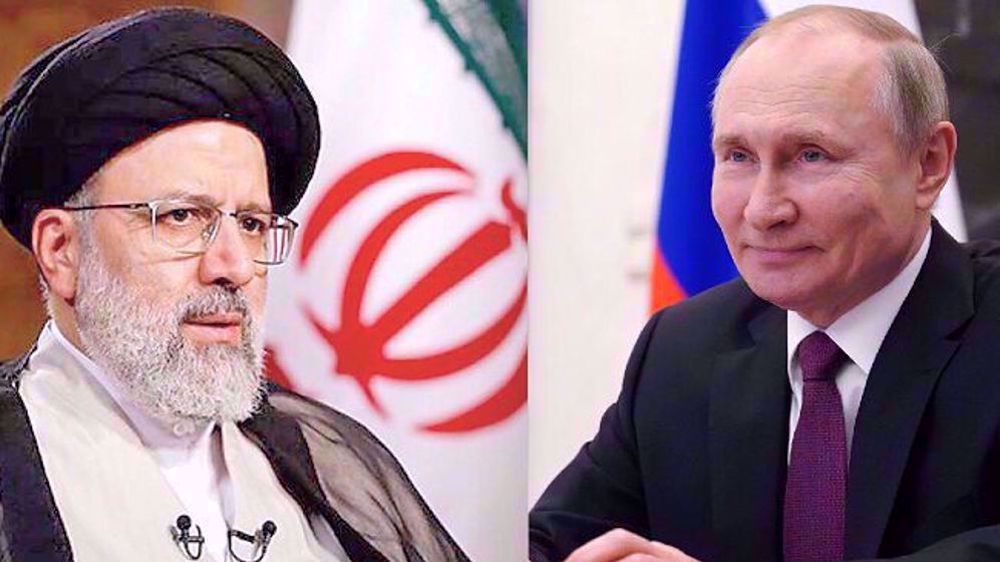
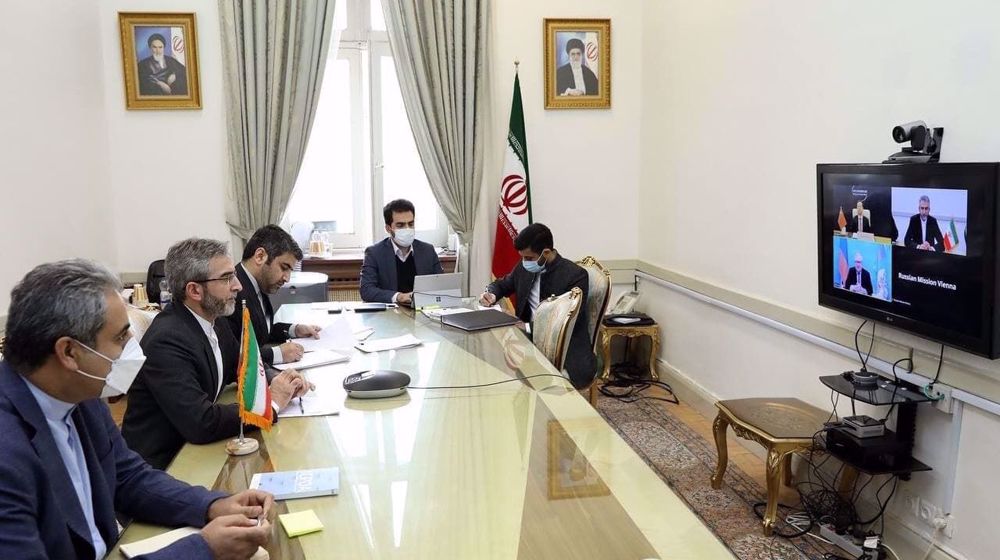




 This makes it easy to access the Press TV website
This makes it easy to access the Press TV website